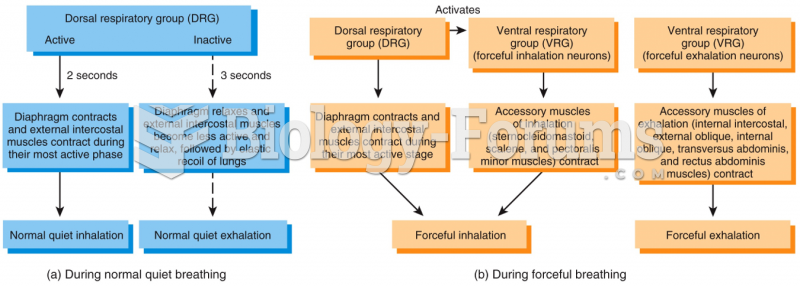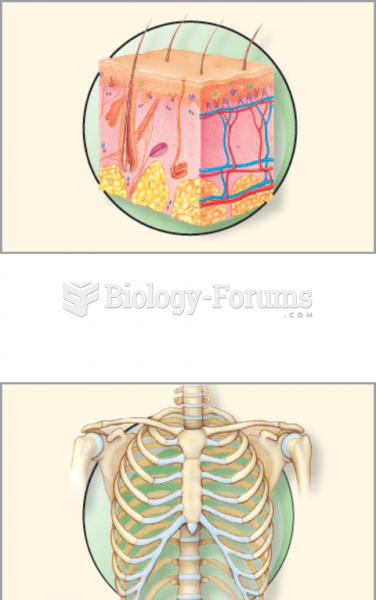Answer to Question 1
1,4,5
Rationale 1: Sweating is an involuntary response that is controlled by the sympathetic nervous system.
Rationale 2: Muscle movement is controlled by the somatic nervous system.
Rationale 3: Complaining of nausea is a result of sensory neuron input and is not part of the autonomic system.
Rationale 4: Salivation is involuntary and is controlled by the autonomic nervous system.
Rationale 5: Breathing deeper when running is controlled by the autonomic nervous system. The act of running is controlled by the somatic nervous system.
Global Rationale: Sweating is an involuntary response that is controlled by the sympathetic nervous system. Salivation is involuntary and is controlled by the autonomic nervous system. Breathing deeper when running is controlled by the autonomic nervous system. The act of running is controlled by the somatic nervous system. Muscle movement is controlled by the somatic nervous system. Complaining of nausea is a result of sensory neuron input and is not part of the autonomic system.
Answer to Question 2
1
Rationale 1: Liquid forms of potassium chloride (KCl) must be diluted prior to administration through a nasogastric (NG) tube to decrease gastrointestinal (GI) distress.
Rationale 2: Flushing the tube with Coca-Cola is an outdated practice and should not be done.
Rationale 3: Flushing the tube before and after administration of the drug is important, but the drug must still be diluted to decrease gastrointestinal (GI) distress.
Rationale 4: There is a preparation that must occur.
Global Rationale: Liquid forms of potassium chloride (KCl) must be diluted prior to administration through a nasogastric (NG) tube to decrease gastrointestinal (GI) distress. There is a preparation; the drug must be diluted to decrease gastrointestinal (GI) distress. Flushing the tube with Coca-Cola is an outdated practice and should not be done. Flushing the tube before and after administration of the drug is important, but the drug must still be diluted to decrease gastrointestinal (GI) distress.







